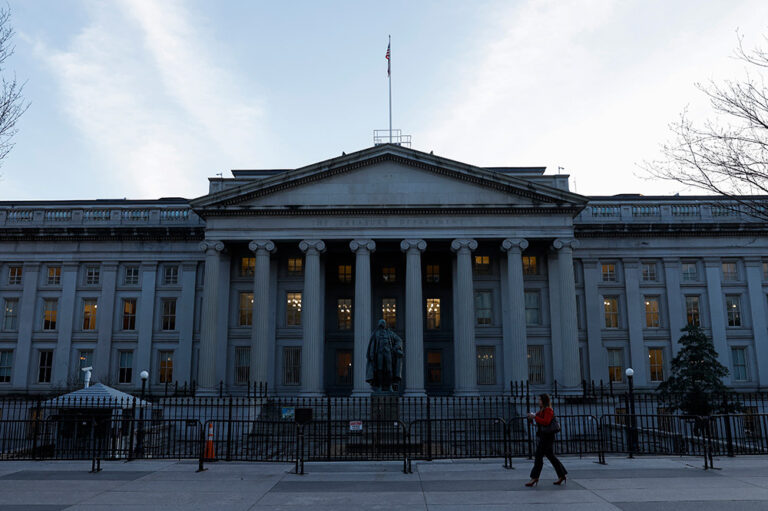On May 16, Moody’s Ratings downgraded the U.S. credit rating, citing an inability of the nation to address large and growing deficits. This downgrade means that for the first time ever, all three major credit ratings agencies have downgraded U.S. credit below their top rating. Moody’s warning comes as lawmakers are considering budget reconciliation legislation that would make America’s fiscal situation significantly worse.
The new report from Moody’s downgrades the U.S. credit rating from the top level of Aaa (negative) to Aa1 (stable). In its announcement, Moody’s stated the following primary reasons for doing so:
- Growing debt caused by increased federal spending and reduced revenues from tax cuts. Moody’s includes the assumption that extension of the 2017 TCJA provisions will add $4 trillion to the debt over the next decade.
- Growing federal interest payments, driven by rising interest rates. The cost of financing the U.S. debt has increased rapidly, driven by higher Treasury yields since 2021.
In particular, Moody’s continues to warn that “successive US administrations and Congress have failed to agree on measures to reverse the trend of large annual fiscal deficits and growing interest costs. . . . In turn, persistent, large fiscal deficits will drive the government's debt and interest burden higher. The US' fiscal performance is likely to deteriorate relative to its own past and compared to other highly-rated sovereigns.”
The two other major credit rating agencies, Standard & Poor’s (S&P) and Fitch Ratings, have both already downgraded the nation’s rating — S&P in 2011 and Fitch in August 2023.
S&P and Fitch Ratings also recognize the risk presented by growing debt and political division for the U.S. outlook. When S&P lowered the sovereign credit rating for the United States more than a decade ago, it noted weakening “effectiveness, stability, and predictability of American policymaking and political institutions” as well as an insufficient fiscal stabilization plan for the medium-term. The 2023 downgrade from Fitch Ratings cited the nation’s high and rising debt, the lack of a plan to address the drivers of that debt, and the erosion of good governance.
Sovereign credit ratings assess the capacity and willingness that a borrower will default on its debt obligations. Now, all three major rating agencies have lowered their ratings for U.S. debt, reflecting deep concern about the United States’ growing debt and deficits. These serious and credible warnings should send a strong message to policymakers about the need to address America’s unsustainable fiscal path.
Image credit: Photo by Samuel Corum/Getty Images
Further Reading
The Fed Reduced the Short-Term Rate Again, but Interest Costs Remain High
High interest rates on U.S. Treasury securities increase the federal government’s borrowing costs.
What Types of Securities Does the Treasury Issue?
Let’s take a closer look at a few key characteristics of Treasury borrowing that can affect its budgetary cost.
Quarterly Treasury Refunding Statement: Borrowing Up Year Over Year
Key highlights from the most recent Quarterly Refunding include an increase in anticipated borrowing of $158 billion compared to the same period in the previous year.


